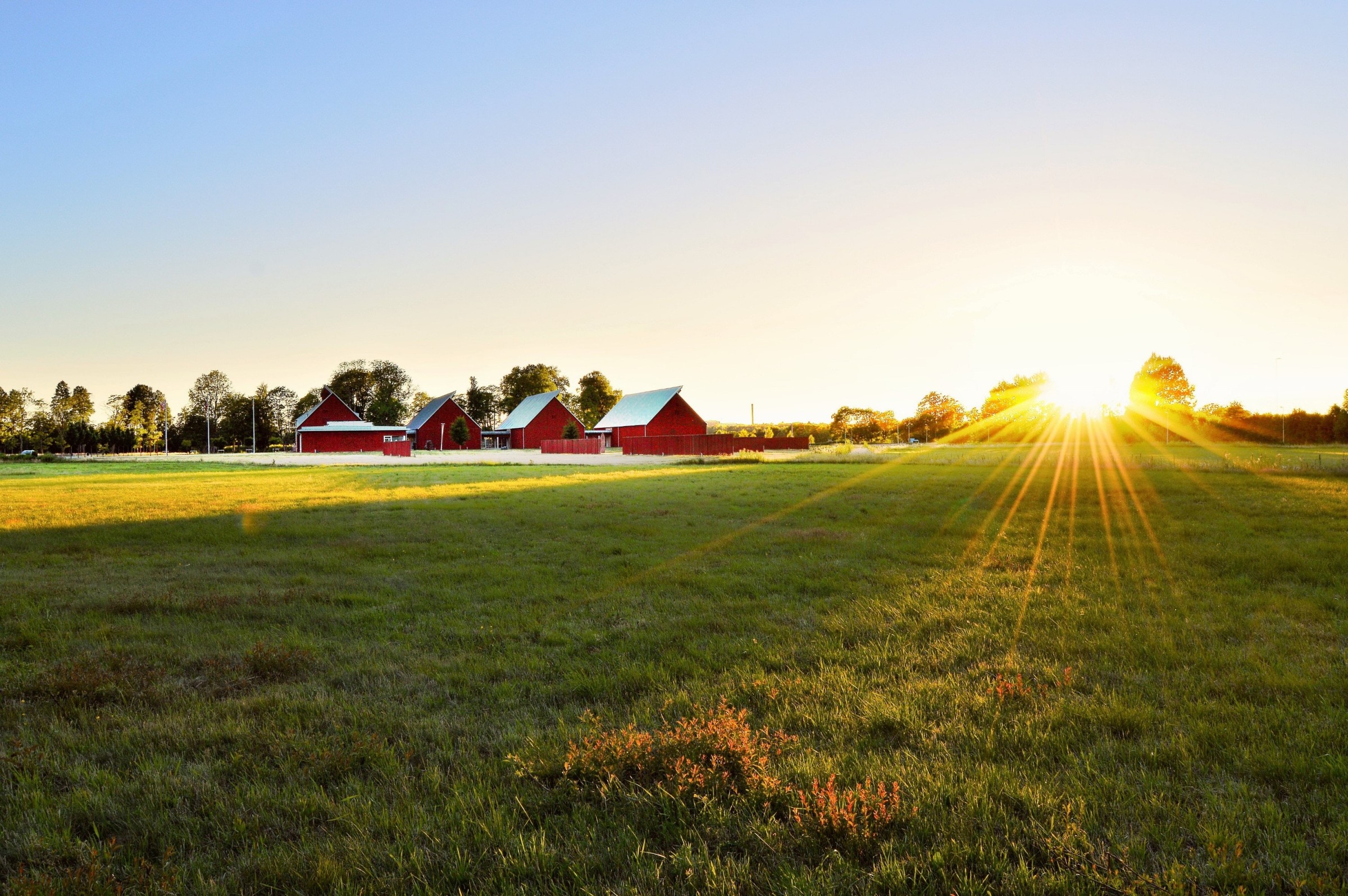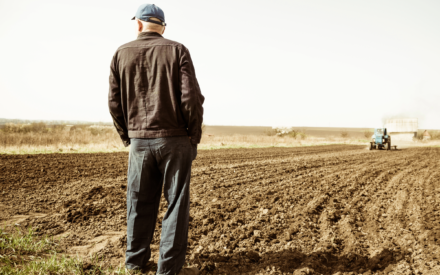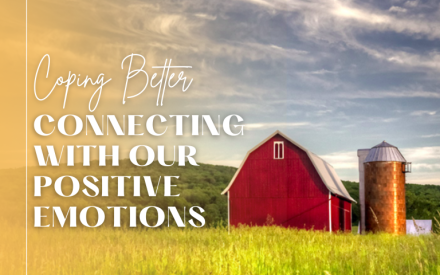Every day, farmers and farm families face financial challenges, demands of the job, and changes outside of their control that impact their lives and livelihoods. Market volatility for inputs and outputs, access to labor, challenging weather conditions, and the pressure to grow and modernize are underlying drivers of this occupational stress.
Coping with these daily challenges can lead to chronic stress. This stress can affect a farmer’s mental and physical well-being, relationships, and decision-making. A 2019 survey conducted by the American Farm Bureau Federation found that mental health is an important issue to 82% of farmers/farm workers or their families. In addition, farmers and farmworkers are at a higher risk for death by suicide. Wisconsin farmers are 1% of the population and 2% of the suicides in the state, according to Sara Kohlbeck, Director of the Division of Suicide Prevention at the Medical College of Wisconsin. Kohlbeck’s research has noted issues leading to this rate, including lack of access to services, stress from physical health issues, ready access to lethal means, and the overall stress of farming. Farmers have cited obstacles of cost, embarrassment, and awareness of mental health to be a barrier in seeking treatment.
With the growing recognition of farm stress and mental health and well-being, several efforts to help farmers and their families have been established in Wisconsin.
Farmer wellbeing and rural mental health cannot be treated like the crises of before. To break through the stigma and encourage self-care, a consistent and constant support network needs to be built and remain in place.
National Mental Health Resources
North Central Farm and Ranch Stress Assistance Center
National AgLaw Center Map of State-Specific Mental Health Resources & Hotlines
National AgLaw Center Nationwide Mental Health Resources & Hotlines
988 Suicide and Crisis Lifeline
AgriSafe Network
Opioid Use in Rural American – Rural Community Toolbox
Great Lakes Mental Health Technology Transfer Center (MHTTC)
National Hispanic and Latino MHTTC
National American Indian and Alaska Native MHTTC
Great Lakes PTTC: Preventing and Reducing Stigma
Statewide Mental Health Resources
AgrAbility of Wisconsin
AgrAbility of Wisconsin website
Project Summary
Since 1991, AgrAbility of Wisconsin has been promoting success in agriculture for farmers with disabilities and their families.
Contact
Michelle Bachand
agrability@wisc.edu
608-262-9336
Circle Sisters Gathering for Women in Rural Wisconsin
Project Summary
In the busyness of everyday life and the physical distance between us, we are using other tools to connect with each other. We offer the chance to gather in person the last weekend in January and offer daily connections on the Circle Sisters Facebook page. The page is a safe place where farm and rural women can share personal growth with no judgment, set, plan out, and achieve goals, share struggles, get tools for their personal growth tool box, and be themselves.
Contact
JoAnn Pipkorn
jmmpipkorn@gmail.com
414-801-6214
Cultivating Resiliency
Cultivating Resiliency website
Project Summary
The Cultivating Resiliency project develops tools for women in agriculture to recognize, adapt to, and develop positive coping strategies to life’s stresses. The project produces regular live webinars on topics covering a wide range of stress management, mental health and management topics, as well as monthly free online “Coffee Chat” group. This is an opportunity for people to share what is on their minds related to agricultural stress in a safe place.
Contact
Doris Mold
doris@sunriseag.net or meganr@umn.edu
Farm Business and Production Management (FBPM)
Project Summary
FBPM is a program offered at area technical colleges that work directly with farmers on various topics. Mental health and well-being is covered in many of the student farm visits. There are grants available to offset tuition.
Contact
Sara Maass-Pate
maasspat@fvtc.edu
715-853-9226
Farm Neighbors Care
Project Summary
Farm Neighbors Care is a campaign to support our farmers who are facing stress due to low market prices, poor weather and crop conditions, etc. The campaign asks rural residents to have face-to-face conversations with farmers and agri-business owners. For some, this conversation and check-in may be the dose of positivity needed to make it through a tough day.
Contact
Wendy Volkert
wvolkert@wfbf.com
608.828.5719
National Alliance on Mental Illness (NAMI) Wisconsin
Project Summary
NAMI Wisconsin is the State Affiliate of NAMI for Wisconsin. Our mission is to improve the quality of life of those affected by mental illness and to promote recovery.
Contact
nami@namiwisconsin.org
608-268-6000
NAMI is not equipped to handle crisis calls. If you are in a mental health crisis, call 988 to be connected to a trained counselor. If you are in immediate physical danger, call 911 and ask for a mental health trained officer.
Resilient Farms and Families
Resilient Farms & Families website
Project Summary
The Resilient Farms & Families effort coordinates the University of Wisconsin-Madison Division of Extension educational and outreach efforts around farm stress and farm resiliency. It does this with project partners while also promoting and supporting other organizations’ efforts where appropriate. The ultimate goal of this work is to support farmer mental health and improve farm family resiliency.
Contact
Joy Kirkpatrick
joy.kirkpatrick@wisc.edu
608-263-3485
Stronger TogetHER initiative
Project Summary
The Dairy Girl Network recognizes the need for conversations and on-going awareness of mental health. The Dairy Girl Network’s initiative #StrongerTogetHER compiles a list of public resources on their website, as well as hosting conversations where women in the private Facebook community bravely share their personal stories about mental health topics.
Contact
Amanda Borkowski
amandab@dairygirlnetwork.com
4147021722
Talking, Understanding, Growing, Supporting (TUGS)
Project Summary
TUGS is a nonprofit community organization founded in 2013 with a singular mission: to address the stigma surrounding mental health challenges and suicide, particularly among those members of our society who find it most difficult to accept and express their very real personal struggles and professional frustrations. We work directly with individuals and in partnership with other community groups to promote both mental health awareness and suicide prevention.
Contact
Jeffrey Ditzenberger
tugsgroup@gmail.com
608-214-9137
The Rural Resiliency Project
Project Summary
The purpose of the project is to increase the resiliency and promote the vibrancy of rural Wisconsin focusing primarily on farmers, farm families, and those in related agricultural fields. Our programs seek to improve the lives of farmers and to enrich our understanding of the impact of farms, farmers, and agriculture on rural Wisconsin and beyond.
Contact
Doris Mold
ruralresiliencywi@gmail.com
Great Lakes Rural Opioid Technical Assistance Regional Center (ROTA-RC)
Project Summary
The Great Lakes ROTA-RC strengthens community capacity to prevent, treat, and support recovery for opioid use disorder and other mental health and substance use disorders, using a whole family/whole community approach to provide culturally appropriate educational opportunities.
Contact
Amanda Coorough
amanda.coorough@wisc.edu
Jennifer Park-Mroch
jenniferpark@wisc.edu
6082628083
Wisconsin Farm Center
Project Summary
The Wisconsin Farm Center connects farmers and their families with free and confidential services that include counseling services provided by mental health professionals through the 24/7 Farmer Wellness Helpline, tele-counseling, counseling vouchers, farmer online support groups. Farmer and farm couple online support groups led by farmers with lived experience are also available.
Contact
Karen Endres
karenk.endres@wisconsin.gov
608-982-6007
Wisconsin Rural Women’s Initiative (WRWI)
Wisconsin Rural Women’s Initiative website
Project Summary
Wisconsin Rural Women’s Initiative empowers women primarily living in rural areas. The ultimate goal is to effect systemic change within families and their communities through a unique Gathering Circle process. WRWI promotes wellness by developing personal skills and cultivates transformation in a safe environment.
Contact
Christy Harteau
wisconsinruralwomen@gmail.com
262-812-3866
Substance Use Resources
County Resources Map
For county resources, find your county on the map below.



 Five tools to address stress
Five tools to address stress Benefits of Sleep for Mental and Physical Wellbeing
Benefits of Sleep for Mental and Physical Wellbeing February is Heart Health Month — Achieve a Happy Heart!
February is Heart Health Month — Achieve a Happy Heart! Coping Better Episode 7 | F.A.R.M.(ing) a Healthy Future
Coping Better Episode 7 | F.A.R.M.(ing) a Healthy Future